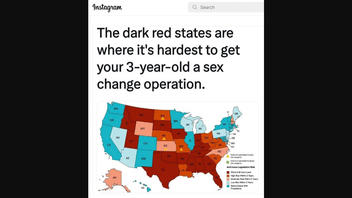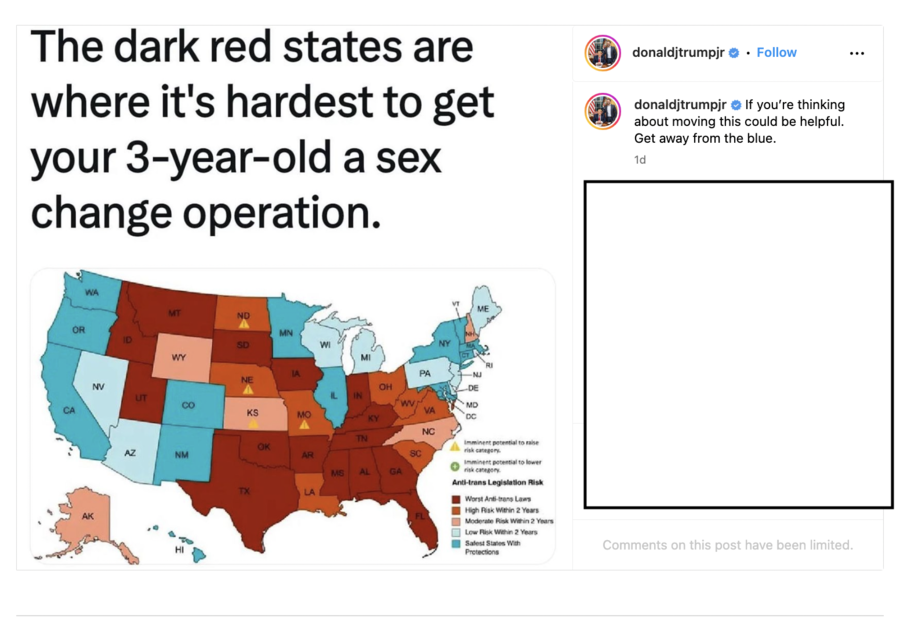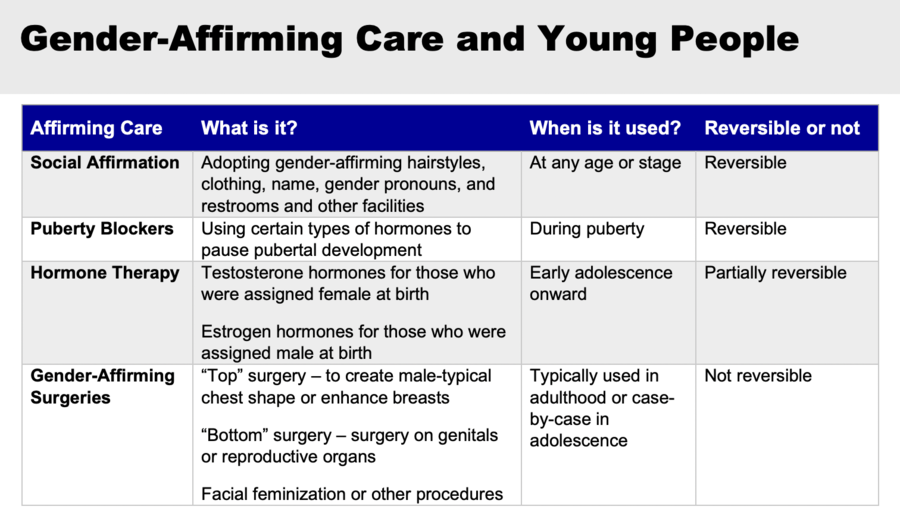
Does a map circulating on social media prove 3-year-old children can get a gender-affirming surgery in the United States? No, that's not true: There is no evidence that such surgeries have ever been performed on patients of this age, and the existing standards for gender-affirming care do not recommend any medical interventions before a person reaches puberty.
The claim appeared in a post on Instagram on April 19, 2023. It showed a map titled:
The dark red states are where it's hardest to get your 3-year-old a sex change operation.
However, the map does not show what its caption says.
It was initially published under the title "The Final Anti-Trans Legislative Risk Map Of 2022" by the activist Erin Reed; neither data used to categorize the states nor the article discussing the map had anything to do with purported "sex change surgeries" for 3-year-olds.
The Office of Population Affairs at the U.S. Department of Health says that "early gender-affirming care is crucial to overall health" at any age, including childhood, but no specific medical interventions are needed before a person reaches puberty:
Puberty typically occurs between ages 8 and 13 in girls and between ages 9 and 14 in boys.
In 2022, the World Professional Association for Transgender Health changed its international guidelines, allowing some gender-affirming surgery to be performed earlier. However, in addition to adults, the document only discusses adolescents in the context of such medical interventions -- not 3-year-old children. Acknowledging the limitations of existing studies, the guidelines explain:
While the sample sizes are small, these studies suggest there may be a benefit for some adolescents to having these procedures performed before the age of 18. Factors that may support pursuing these procedures for youth under 18 years of age include the increased availability of support from family members, greater ease of managing postoperative care prior to transitioning to tasks of early adulthood (e.g., entering university or the workforce), and safety concerns in public spaces (i.e., to reduce transphobic violence.) Given the complexity and irreversibility of these procedures, an assessment of the adolescent's ability to adhere to postsurgical care recommendations and to comprehend the long-term impacts of these procedures on reproductive and sexual function is crucial. Given the complexity of phalloplasty, and current high rates of complications in comparison to other gender-affirming surgical treatments, it is not recommended this surgery be considered in youth under 18 at this time.
Lead Stories found no open-source information confirming that gender-affirming surgeries have ever been performed on 3-year-olds.
In 2019, a New Hampshire high school student described by a local news station as "one of the youngest people to undergo gender reassignment surgery" was 17 years old.
In 2009, Deutsche Welle wrote that the "world's youngest known transsexual when she completed gender reassignment surgery" was 16.
Lead Stories previously wrote that 4-year-olds are not prescribed puberty blockers.



















